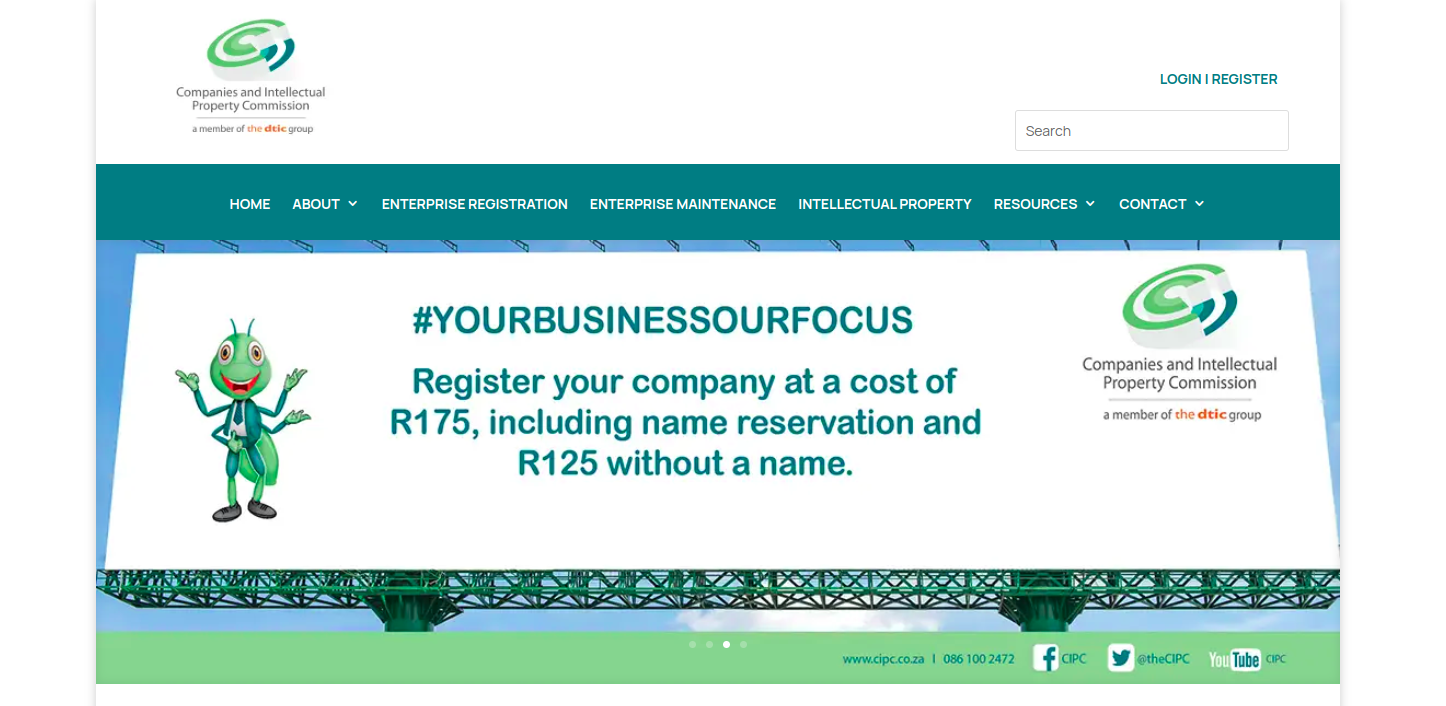last Updated on July 10, 2023
Are you ready to turn your entrepreneurial dreams into reality and register a company in South Africa? Look no further! In this comprehensive guide, we will walk you through the step-by-step process of company registration, empowering you to navigate the legal and administrative requirements with ease.
Whether you’re a budding entrepreneur or an established business owner, understanding the intricacies of company registration is crucial for success. From choosing the right business structure to completing the necessary documentation, we’ve got you covered.
3188 People are Reading: Top Highest Paying Jobs in South Africa
When you want to start a business in South Africa, one of the crucial steps is to register your company in South Africa. Registering a company not only provides legal recognition but also grants you certain rights and protections like business loans and tax incentives.
Get ready to embark on an exciting journey as we unveil the secrets to establishing a legally compliant and thriving company in South Africa. It’s time to unleash your entrepreneurial spirit and make your mark in the business world. Let’s dive in and learn how to register a company in South Africa like a true business visionary.
2083 People are Reading: Top 20 Highest Paying Jobs in South Africa
How do I Register a Company in South Africa?


These easy steps would help get your company registered.
1. Choose a Company Name
Selecting a unique and memorable name for your company is crucial. It should reflect your business and comply with the South African Companies Act. Consider the following guidelines:
- The name must be distinguishable from existing companies.
- It should not be offensive, misleading, or contain prohibited words.
- It must include a legal ending based on the type of company, such as “(Pty) Ltd” or “Inc.”
2. Reserve Your Company Name
To secure your chosen company name, it’s advisable to reserve it through the Companies and Intellectual Property Commission (CIPC).
This prevents others from registering a company with the same name for six months.
The reservation process involves the completion of a name reservation form and payment of the required fee.
3. Appoint Directors and Incorporators
A company in South Africa must have at least one director and one incorporator.
Directors are responsible for managing the company’s affairs, while incorporators are responsible for initiating the company’s registration. Both can be natural persons or legal entities.
4. Prepare the Required Documentation
Gather the necessary documents for the registration process, including:
- Memorandum of Incorporation (MOI): This document outlines your company’s rules, rights, and responsibilities. It must be customised to suit your company’s specific needs.
- Identification Documents: Provide copies of the directors’ and incorporators’ identification documents, such as passports or identity cards.
- Proof of Address: Submit proof of the physical address where the company will operate, such as utility bills or lease agreements.
- Share Certificates: Issue share certificates to shareholders, specifying the number and value of shares held.
4099 People are Reading: How to Check for Unclaimed Money in South Africa
5. Register Your Company with CIPC
To register your company in South Africa, you must submit the required documents to the CIPC. The registration can be done online through the CIPC eServices portal or manually at a CIPC office.
To register your company on CIPC, follow these steps:
- Complete the CoR14.1 form, which includes information about the directors, incorporators, and initial shareholders.
- Draft the MOI, ensuring it complies with the Companies Act.
- Pay the prescribed registration fee, which varies based on the type of company and the authorized share capital.
- Submit the completed CoR14.1 form, MOI, and supporting documents to the CIPC either online or in person.
- Await the processing of your application. The CIPC will review the documents and verify their compliance. This process typically takes a few business days.
- Once approved, you will receive a Certificate of Incorporation (COI) and a unique company registration number. This confirms the successful registration of your company.
2593 People are Reading: What is a Good Credit Score in South Africa
Understand the Types of Companies to Register in South Africa
Before diving into the registration process, it’s essential to familiarise yourself with the different types of companies recognized in South Africa.
The most common types of companies you can register in South Africa include:
- Private Company (Pty) Ltd: This is the most popular form of company for small and medium-sized businesses. It offers limited liability to its shareholders.
- Public Company (Ltd): Public companies can offer shares to the public and have more stringent regulations and reporting requirements compared to private companies.
- Personal Liability Company (Inc): This type of company is suitable for professional practitioners such as attorneys or doctors. Shareholders are personally liable for the company’s debts.
- Non-Profit Company (NPC): NPC is formed for social or charitable purposes and is not intended for generating profits for its members.
Should I Register for Tax?
After company registration, it’s crucial to comply with SARS for income tax.
Registering for taxation purposes involves the following steps:
- Obtain a Tax Clearance Certificate: Apply for a Tax Clearance Certificate from the South African Revenue Service (SARS). This certificate verifies that your company’s tax affairs are in order.
- Register for Income Tax: Complete the relevant forms to register your company for income tax purposes with SARS. You will need your CoI and other supporting documents.
- Register for Value-Added Tax (VAT): If your company’s annual turnover exceeds the VAT threshold, you must register for VAT with SARS.
- Register for Pay As You Earn (PAYE): If you plan to employ staff, you must register for PAYE, which is the system for deducting tax from employee salaries.
Should I Open a Business Bank Account?
To separate your personal and business finances, it’s advisable to open a dedicated business bank account.
Contact different banks to compare their offerings and requirements. Prepare the necessary documents, such as your CoI, identification documents, and proof of address, to facilitate the account opening process.
How to Fulfill Ongoing Compliance Requirements
Once your company is registered, it is important to adhere to ongoing compliance requirements to maintain its legal status.
Some key obligations include:
- Annual Returns: Submit annual returns to the CIPC within the prescribed period. These returns provide updated company information and financial statements.
- Directors’ Duties: Directors must fulfil their fiduciary duties and act in the best interests of the company. They should comply with the Companies Act and other relevant legislation.
- Financial Statements: Prepare and submit annual financial statements following the Companies Act and applicable accounting standards.
- Record-Keeping: Maintain accurate and up-to-date records of the company’s financial transactions, including invoices, receipts, and bank statements.
Checkout: How to Make Money in South Africa
Concluding on How to Register a Company in South Africa
Registering a company in South Africa is a significant step towards establishing a legally recognized business entity.
Remember to choose an appropriate company name, gather the necessary documentation, and fulfil ongoing compliance requirements.
Registering for taxation purposes and opening a business bank account are additional essential steps. By completing these procedures, you can start your entrepreneurial journey in South Africa with confidence.


Leave a Reply